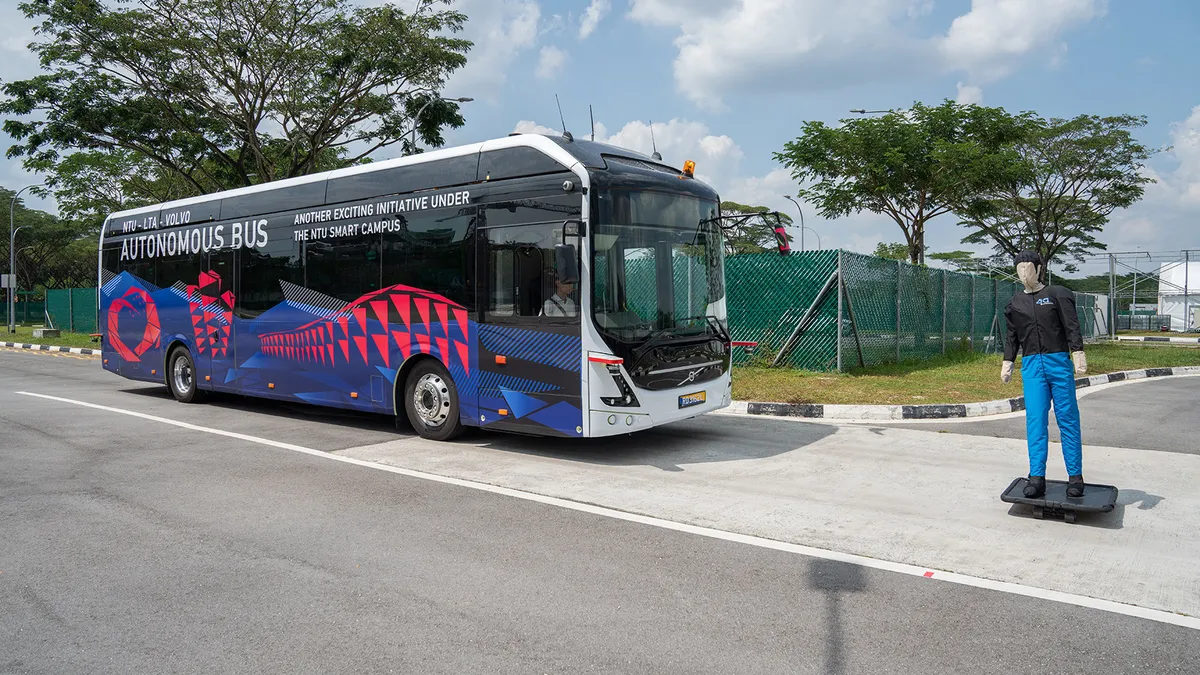Dive Brief:
- Volvo will run trials on its first autonomous electric bus at Singapore’s Nanyang Technological University (NTU), following tests at the Centre of Excellence for Testing and Research of Autonomous vehicles (CETRAN). The bus will run a route on the NTU campus and eventually will expand beyond the campus.
- The Volvo 7900 Electric bus can handle 85 passengers and requires 80% less energy than a diesel-powered bus.
- Volvo's autonomous research software will use inputs from LiDAR, 360-degree cameras and an advanced global navigation system, and can be operated by an artificial intelligence (AI) system. An "inertial management unit" keeps track of the bus’s lateral and angular rate and adjusts to ensure a smooth ride on uneven terrain.
Dive Insight:
The NTU trial marks Volvo’s first application of autonomous technology into buses; in a statement, Volvo Buses president Håkan Agnevall said the focus would be on “applying a safety first approach.” The company has already worked on autonomous trucks, including a garbage truck, and has intentions of bringing autonomy to public transit.
There’s plenty of opportunity for transit agencies to bring in autonomous buses, since they run on defined routes and would further reduce congestion. Many agencies have already begun exploring autonomous shuttles as a microtransit option, with trials going on in cities like like Detroit, Las Vegas and Austin, TX. (Similar to the NTU pilots, there have also been autonomous shuttle trials on the campuses of Sacramento State University and the University of South Florida.) But those trials have been for much smaller vehicles, which may have fewer driving challenges than an 85-passenger bus.
It’s also worth noting that electric buses have faced significant logistical difficulties in the U.S., although cities like Boston and Chicago are eagerly investing in them. There are concerns about how far the buses can run on a single charge, and how they would hold up with a full passenger load, especially in hilly cities or areas with poorly maintained roads. In Los Angeles, some electric buses have broken down and Albuquerque, NM had to cancel a contract over safety concerns. Further testing by companies like Volvo could help address those concerns and show the path forward for advanced bus technology.











